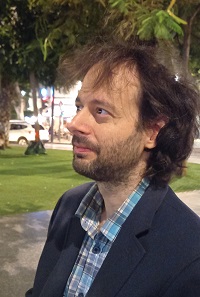Book launch with Uri Weiss
iCourts is hosting a book discussion with Dr Uri Weiss who will present his book "Games to Play and Games not to Play"
Programme
| 11:30-11:35 | Welcome by Center Director, Professor Mikael Rask Madsen |
| 11:35-12:00 | Presentation of the book by Uri Weiss, Polonsky Fellow at Polonsky Academy - Van Leer Institute |
| 12:00-12:20 | Discussants
|
| 12:20-12:30 | Discussion Chair: Center Director, Professor Mikael Rask Madsen |
Book abstract
We have investigated how to make game theory useful, particularly in promoting peace. We concluded that game theory is most useful by choosing which games not to play, particularly games that may lead to war (or games that may lead to such games), and the best way to do that is by adopting a policy of unconditional honesty (i.e., respecting international law) and conditional generosity.
The literature on game theory covers various given games between individual players; it recommends diverse strategies (namely diverse plans of action) for diverse games, particularly those in Nash equilibria, namely, those in which no player benefits from altering strategies while opponents stick to theirs. Surprisingly, sometimes the potential gain from moving from one Nash equilibrium to another is no incentive for players to act accordingly. The literature also covers discussions of what game to design in order to achieve a given goal. This part is the mechanism design theory. Its purpose is to serve social planners ignorant of the preferences of the people involved. We recommend adding to game theory the game of choosing what game to play and what game to refuse to play. This comprises a shift from the maximalist position—aiming to maximize profit—to the minimalist one—aiming at minimizing loss. This raises a discussion of the question, what set of games is advisable to encourage? It is advisable to encourage playing some groups of games, such as trade, and discourages playing other groups of games, such as wars. This shift makes the theory much more applicable to social science: usually, it is impractical to choose what game to play, but it is highly practicable to choose what game not to play and what group of games to play. This requires legislation and similar means; the study of these means aims to improve their use. The extended game theory adds to game theory discussions of equilibria that rest on mistakes—including mistakes as to the choice of a game to play. Discussing the possibility of changing both game and strategy renders game theory part and parcel of social science. Mathematical models do not suffice for this: it requires a clear distinction between describing options and explaining situations. Explanations may lead to efforts at improvement.
Speaker bio
 Dr. Uri Weiss wrote his doctoral dissertation under the supervision of Prof. Robert J. Aumann (a Nobel Prize Winner) and Prof. Ehud Guttel at The Hebrew University.
Dr. Uri Weiss wrote his doctoral dissertation under the supervision of Prof. Robert J. Aumann (a Nobel Prize Winner) and Prof. Ehud Guttel at The Hebrew University.
He has recently published his book "Games to Play and Games not to Play" (Springer, Springer Nature), a joint book with Joseph Agassi. He wrote the book as a Polonsky fellow at Van Leer Jerusalem Institute.
Further information:
More information about the book is available at this link:
https://link.springer.com/book/10.1007/978-3-031-27601-9
Join Zoom Meeting
https://ucph-ku.zoom.us/j/68418281358?pwd=c1A0NWdwZTZCcC9HTVVocDAzWTJqZz09
Meeting ID: 684 1828 1358
Passcode: 030447
